Article published in: March 2023
Article updated in: September 2023
2023 marked the 75th anniversary of the Universal Declaration of Human Rights. In facing the challenges of the 21st century, Nespresso is acutely aware of the importance of its fundamental values of dignity, liberty and equality. According to UN Secretary-General, António Guterres, achieving equality for women is “the unfinished human rights struggle of this century”.
GENDER EQUALITY IS FERTILE GROUND FOR GROWTH
Since the establishment of our gender equality strategy in 2017, under the umbrella of the Nespresso AAA Sustainable Quality™ Program, we have been leveraging our peer reviewed Gender Analysis Tool to unearth opportunities for gender equality improvement in our coffee sourcing regions. In Ethiopia in particular, this work has highlighted the scale of the challenges faced:
- 95% of women had not finished primary school
- Over 50% of women had received zero education
- Ethiopia scores as ‘High Risk’ for women’s exposure to discrimination including gender-based violence1
That’s why we have developed collaborative training projects here, driving systemic change that empowers women – and also men, with both genders actively participating. These include Women's Leadership, Financial Literacy and Household Nutrition, and Safe Spaces, a learning activity for both men and women that aims to change harmful gender norms. With each training project delivered, we feel we are taking a small step to creating a coffee farming future where everyone can flourish.
1 Georgetown University´s Institute Global Women, Peace and Security Index (WPS)
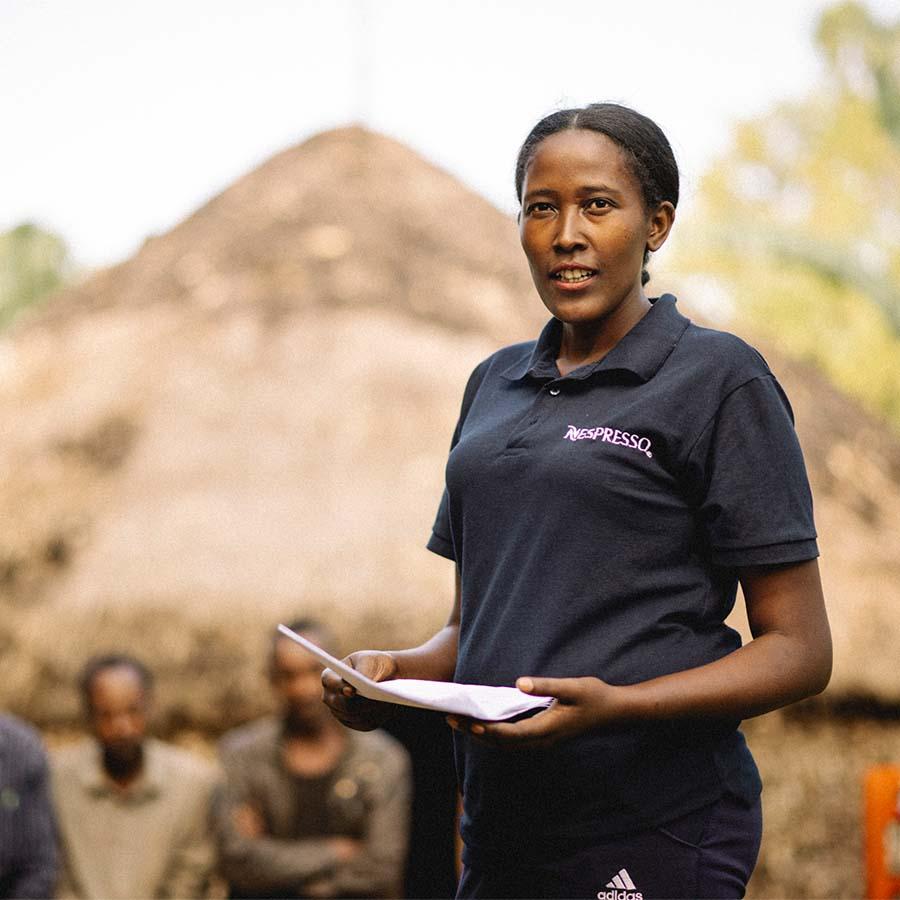
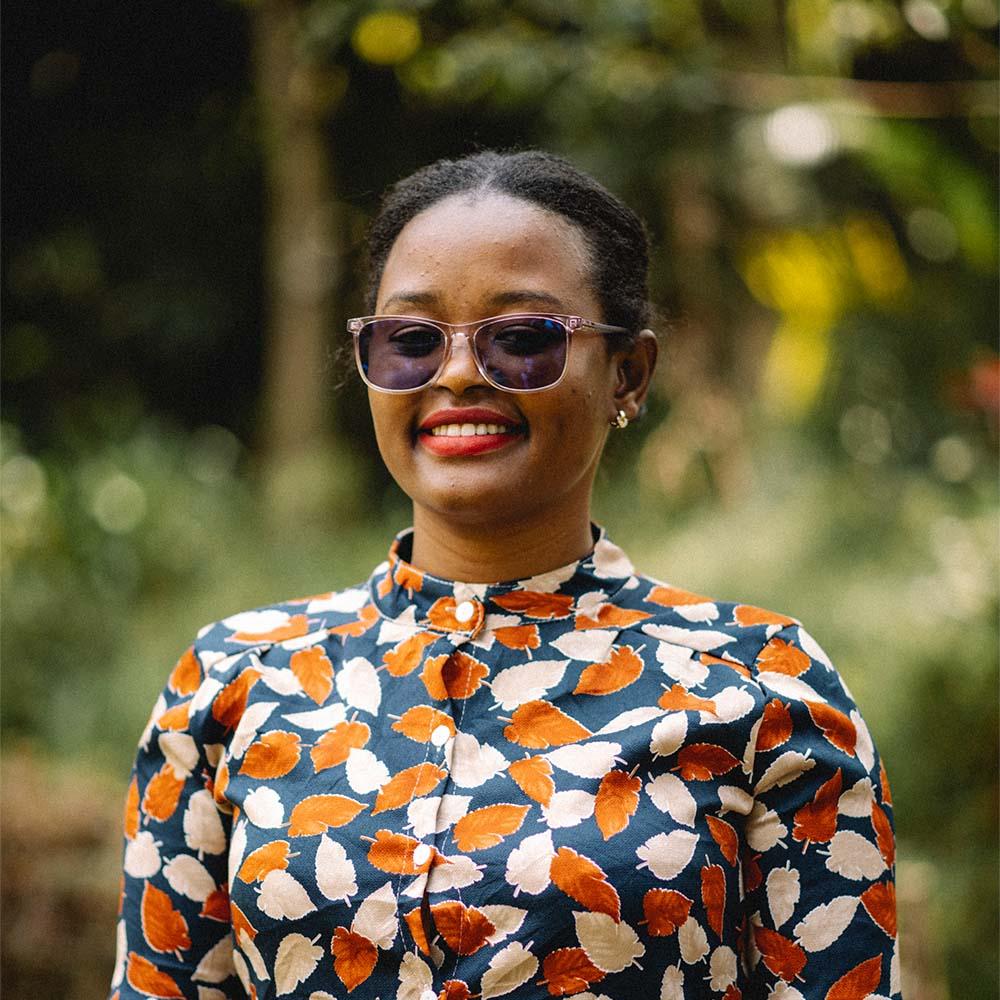
“Girls and boys are often not treated equally. I have seen change in some families due to our gender training: girls are now playing football and are allowed to participate in discussions.”
Mekdes Aweku, Nespresso AAA Agronomist
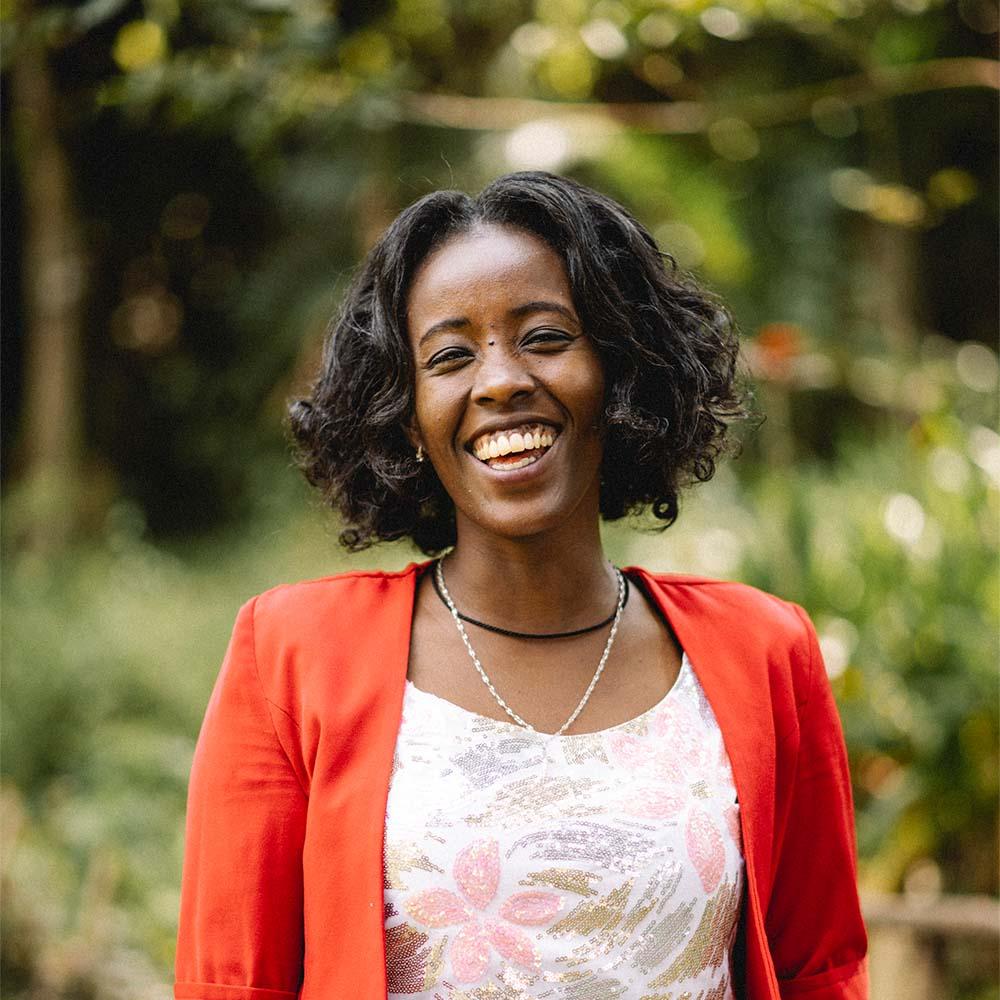
“A husband told me that before the training, he expected his wife to always prepare his food before she left the house, now he just does it himself.”
Hayimanot Belete, Nespresso AAA Agronomist
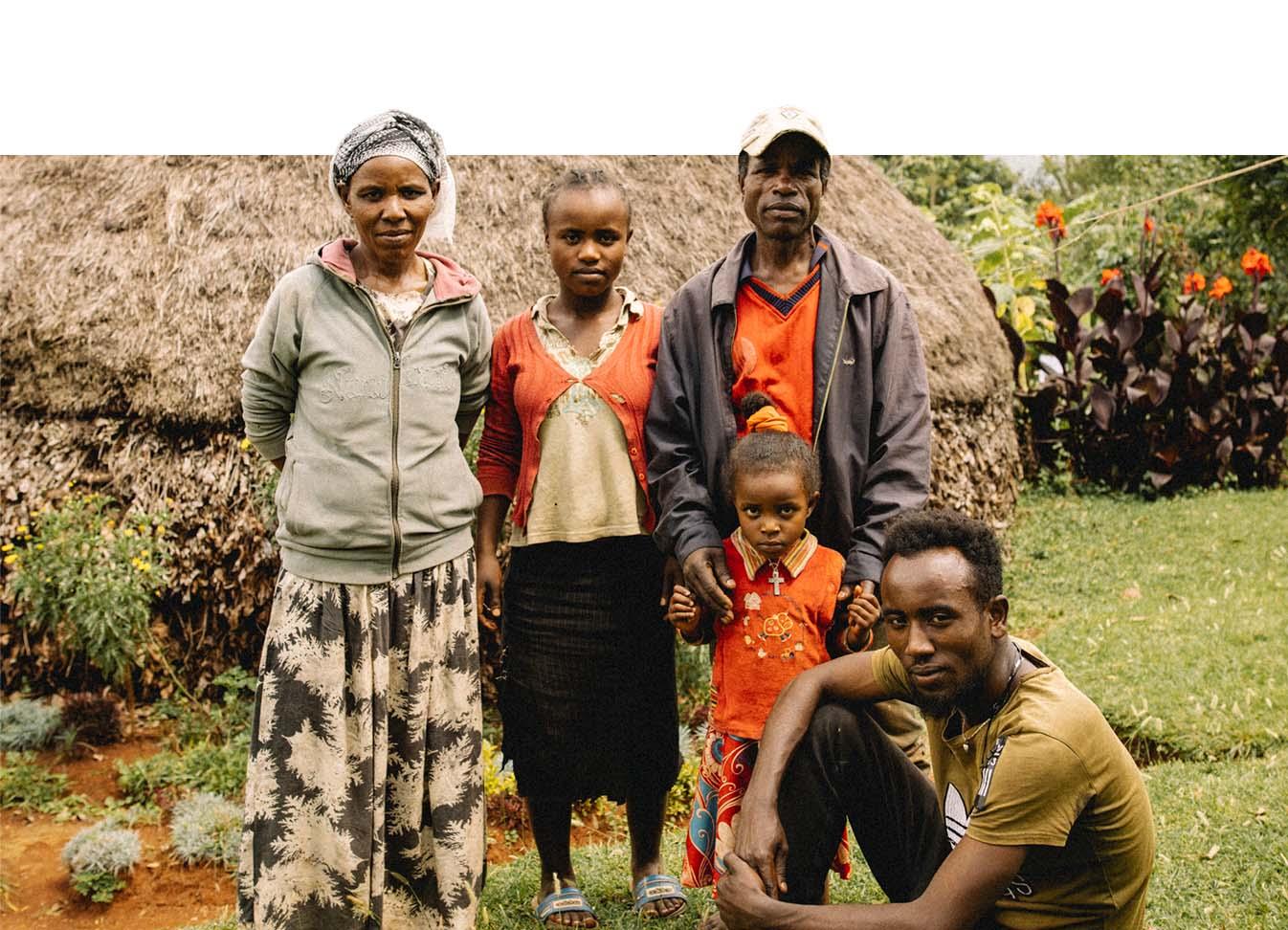
Coffee farmers, Tiringo Tadesse and her husband, Matiwos Roda with their family. The couple participated in our Gender Safe Spaces and Household Nutrition training
“I love agriculture and attended all Nespresso trainings very attentively and applied what I learned. Aside from agriculture, I have no other means of income. I am very proud of the results of my kitchen gardens.”
Tiringo Tadesse
“Before the gender training, we treated our boys and girls differently to each other, so the girls needed to do household work and were not allowed to play. But now we treat them equally. For example, we now ask our boys to make food and coffee.”
Matiwos Roda
Coffee farmers, Adanech Desta (left), Birkinesh Indale (middle) and Bereket Tafese (right) participated in our Household Nutrition, Safe Spaces and Financial Literacy training
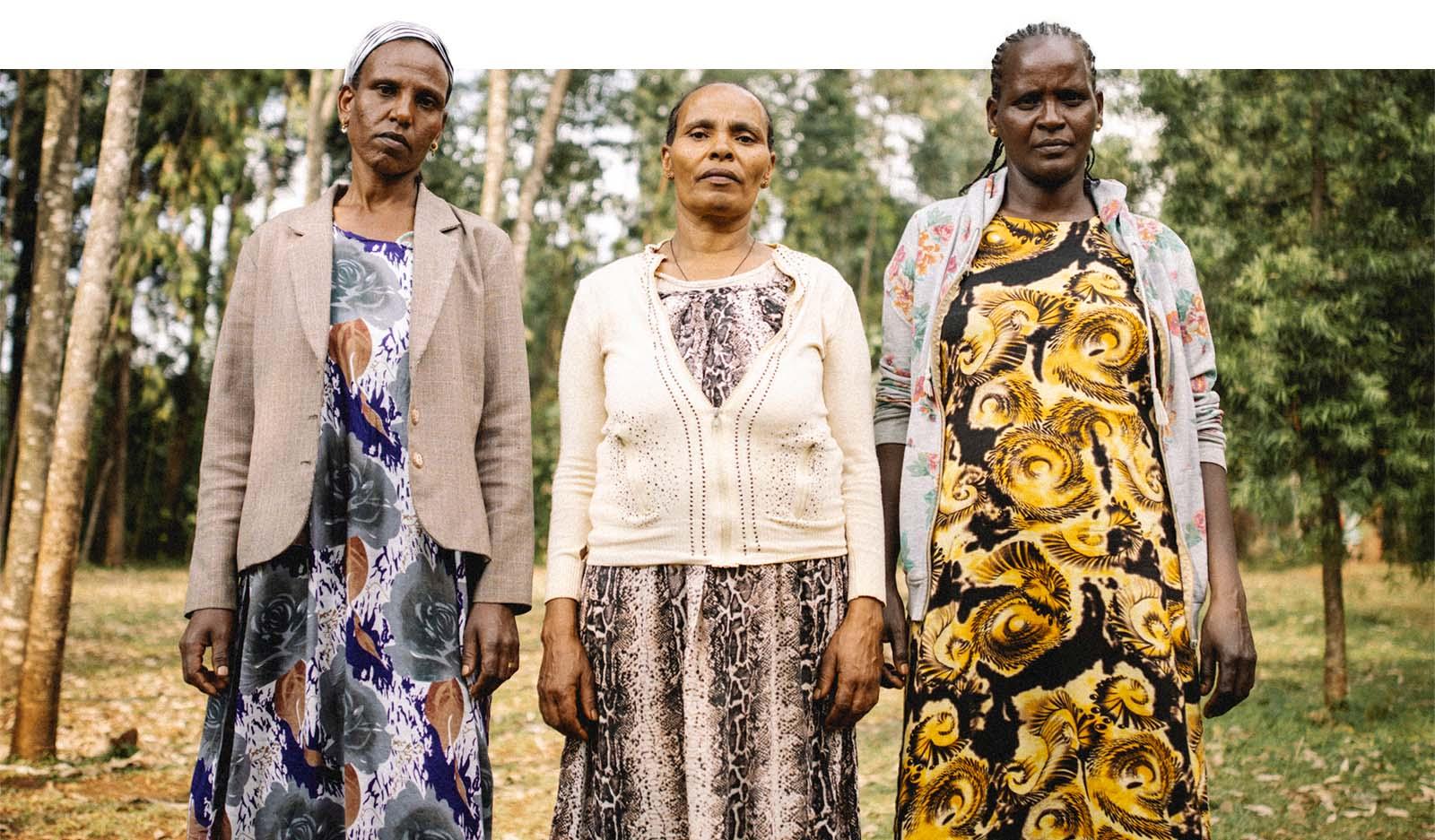
“My father did not involve my mother in any decisions, he decided everything. It used to be the same with my husband, but now we decide everything together, what we do, and how to invest.”
Bereket Tafese
“WE MUST URGENTLY TRANSFORM AND REDISTRIBUTE POWER, IF WE ARE TO SAFEGUARD OUR FUTURE AND OUR PLANET. THAT IS WHY ALL MEN SHOULD SUPPORT WOMEN'S RIGHTS AND GENDER EQUALITY. AND THAT IS WHY I AM A PROUD FEMINIST.”
UN SECRETARY-GENERAL ANTÓNIO GUTERRES, MARCH 2021
Coffee farmers, Etagu Lalegu and her husband, Takale Argau
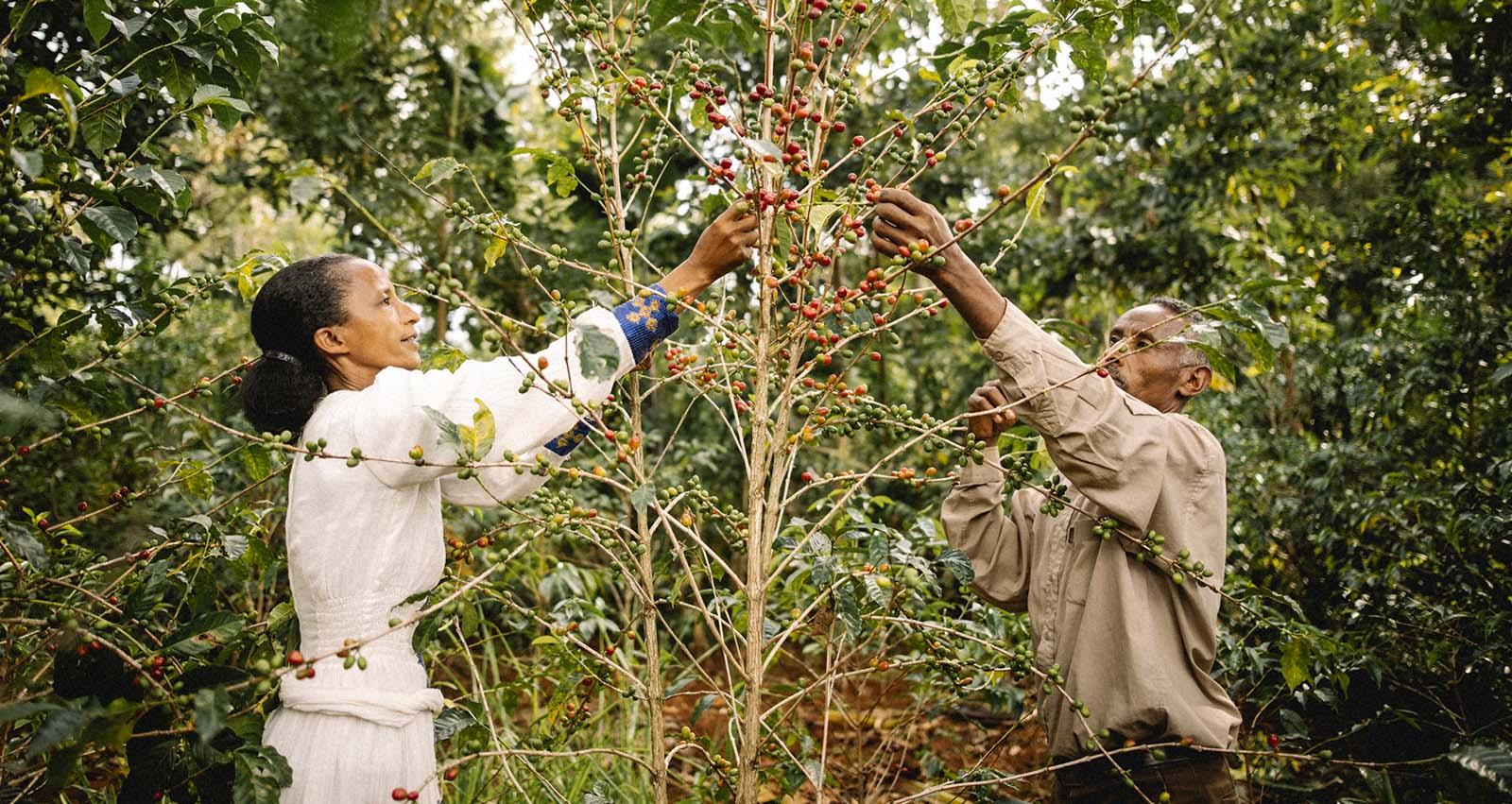
“I liked the Women Leadership training most. It taught me how to first change myself and then change my community. The gender training was also extremely important: we now know that aside from childbirth, men can do whatever women can do and vice versa.”
Etagu Lalegu
“I learned that when my wife doesn´t feel well or is sick, I can also prepare our food. Or if there is no water, I can go and fetch it. I even prepare coffee for us. Our community at first reacted negatively. Slowly they started to change and some of them have also started helping their wives. We were the pioneers though!”
Takale Argau
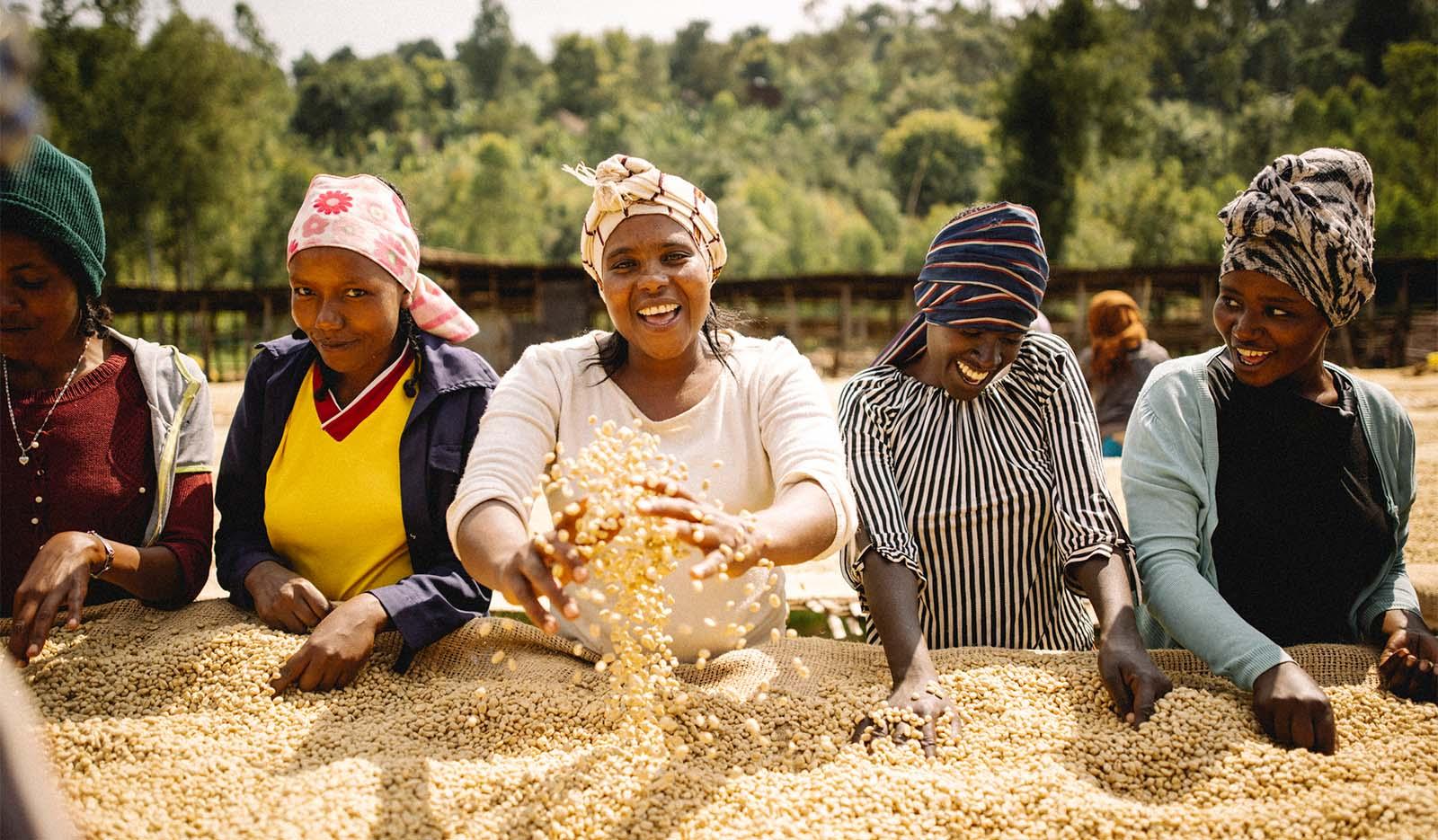
GENDER EQUALITY LEADS TO SUSTAINABLE DEVELOPMENT
Alongside this work on the ground, research has shown that gender-sensitive supply chain policies and programmes enable women to have increased access to extension services, finances, human as well as social capital, and productive assets. This in turn helps them to produce coffee more efficiently, achieve higher yields and farm profits. Women with an income and decision-making role in the family are also more likely to invest their income into the family’s health, nutrition and education. This reality translates into a lower likelihood of child labour as well as improved health, water and sanitation. It shows that gender equality is more than just a basic human right. It is as a springboard to sustainable development.
WOMEN AGRONOMISTS ARE AT THE HEART OF OUR EFFORTS
play videoNURTURING TRANSFORMATION TOWARDS 2030
The Nespresso Gender Strategy for 2030 is using a gender transformative approach to move beyond addressing the symptoms of gender inequality to transforming unequal power relations and facilitating more ambitious social change.
Our Gender Strategy is focused in three areas along a Gender Index that enables us to A: collect data, B: strengthen capacity for change and C: implement projects. Through our three step strategy, we can measure progress and act to drive change through relevant interventions.

AAA Gender Analysis Tool
Generating insights for interventions through rigorous data collection and analysis
Developed jointly with TechnoServe
Peer reviewed by gender and agricultural experts from IFPRI, UN ITC, FAO and IDH
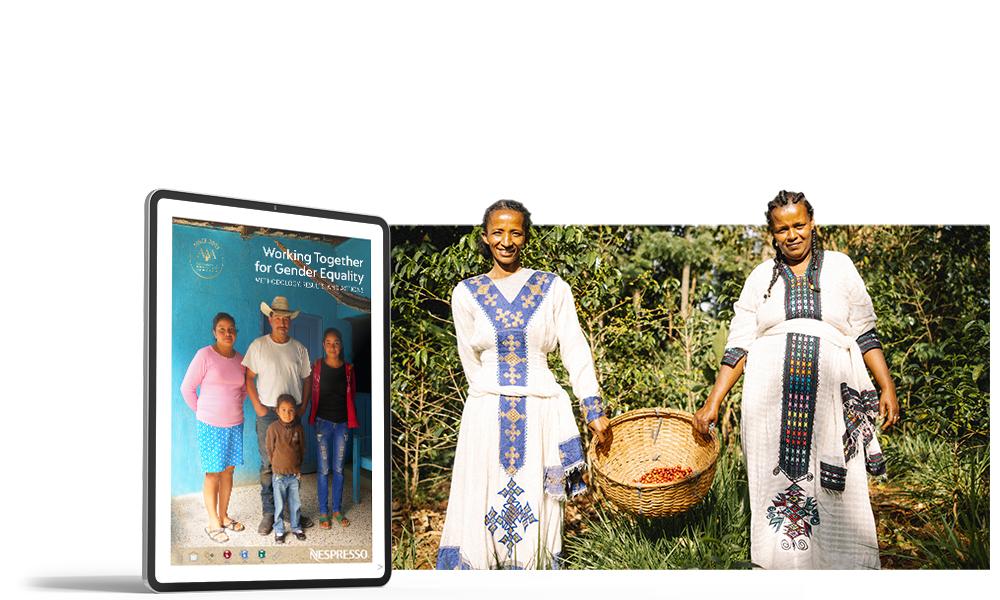

“BY INTEGRATING NEW STRATEGIES TO CHANGE NORMS AND ATTITUDES AROUND GENDER ROLES, SUPPORT WOMEN’S LEADERSHIP AND AGENCY, IMPROVE NUTRITION, AND PROMOTE FINANCIAL LITERACY AND DIVERSIFIED INCOME-GENERATING ACTIVITIES, OUR PARTNERSHIP WITH NESPRESSO AIMS TO ADVANCE WOMEN’S SOCIO-ECONOMIC EMPOWERMENT AND ENSURE LONG-LASTING BENEFITS IN THE COMMUNITIES WHERE WE WORK.”

Cristina Manfre, Global Gender Director, TechnoServe
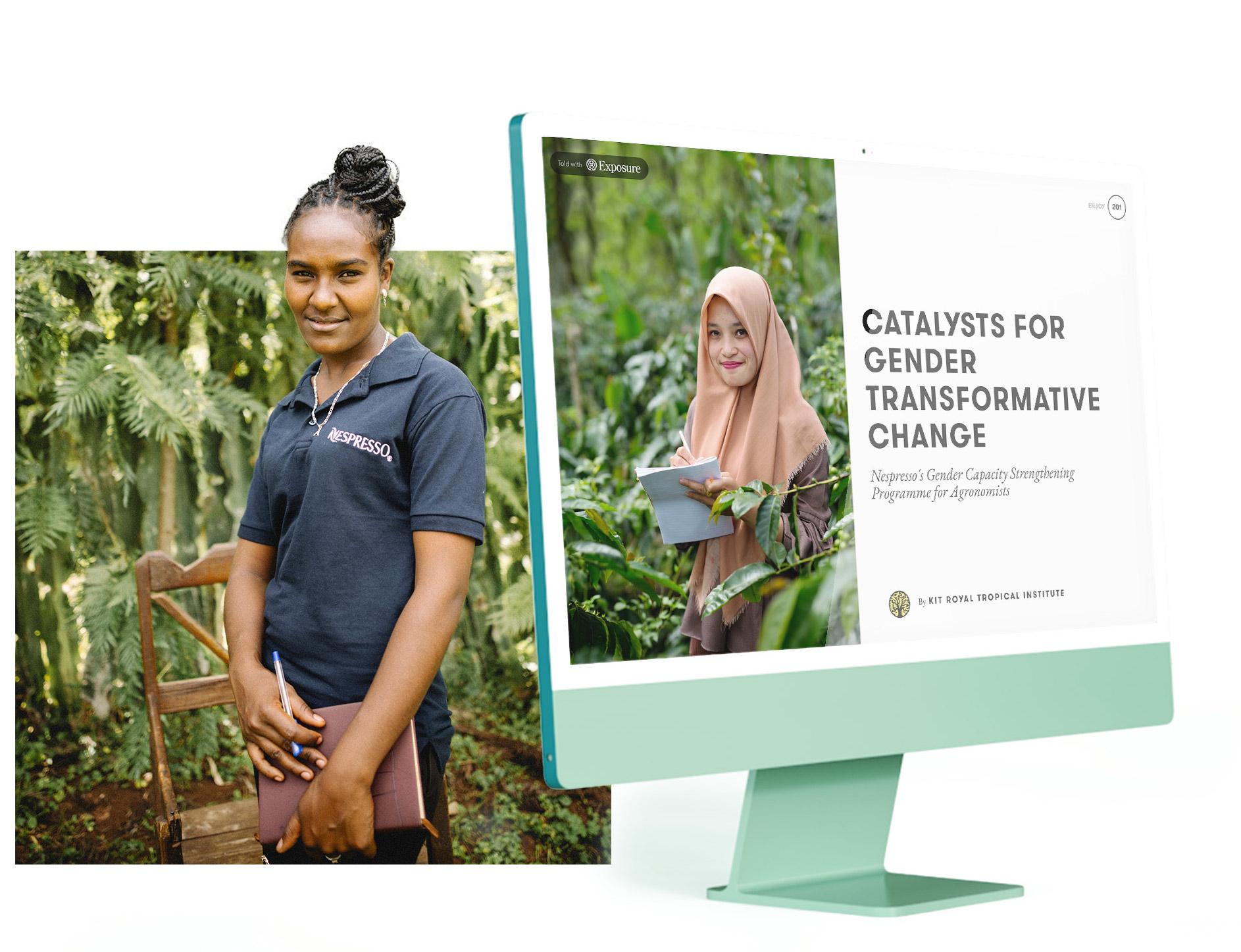
Catalysts for Gender Transformative Change
Capacity strengthening for AAA field staff
In this program the agronomists learn to identify gender inequalities and develop the necessary skills to increase women's access to knowledge, participation and learning, all while strengthening attitudes and behaviors that are conducive for gender equality, for themselves, and the men and women they work with
Developed together with KIT Royal Tropical Institute

“AS GENDERED BEINGS, WE LEARN TO SEE THE WORLD AROUND US WITH A LIMITED PRISM. CATALYSTS FOR GENDER TRANSFORMATIVE CHANGE OPENS A SPACE OF DIALOGUE AND REFLECTION WITH NESPRESSO’S AGRONOMISTS, TO ENABLE THEM TO BUILD LENSES THAT CAN IDENTIFY GENDER INEQUALITIES AND ENGAGE IN PROCESSES TO TRANSFORM THEM.”

Ana Victoria Portocarrero, Senior Advisor Gender, Kit Royal Tropical Institute
Gender Integration & Projects
Gender integration at all levels through impactful interventions
Key projects include: Safe Spaces, Trainings on Financial Literacy, Household Nutrition and Women's Leadership
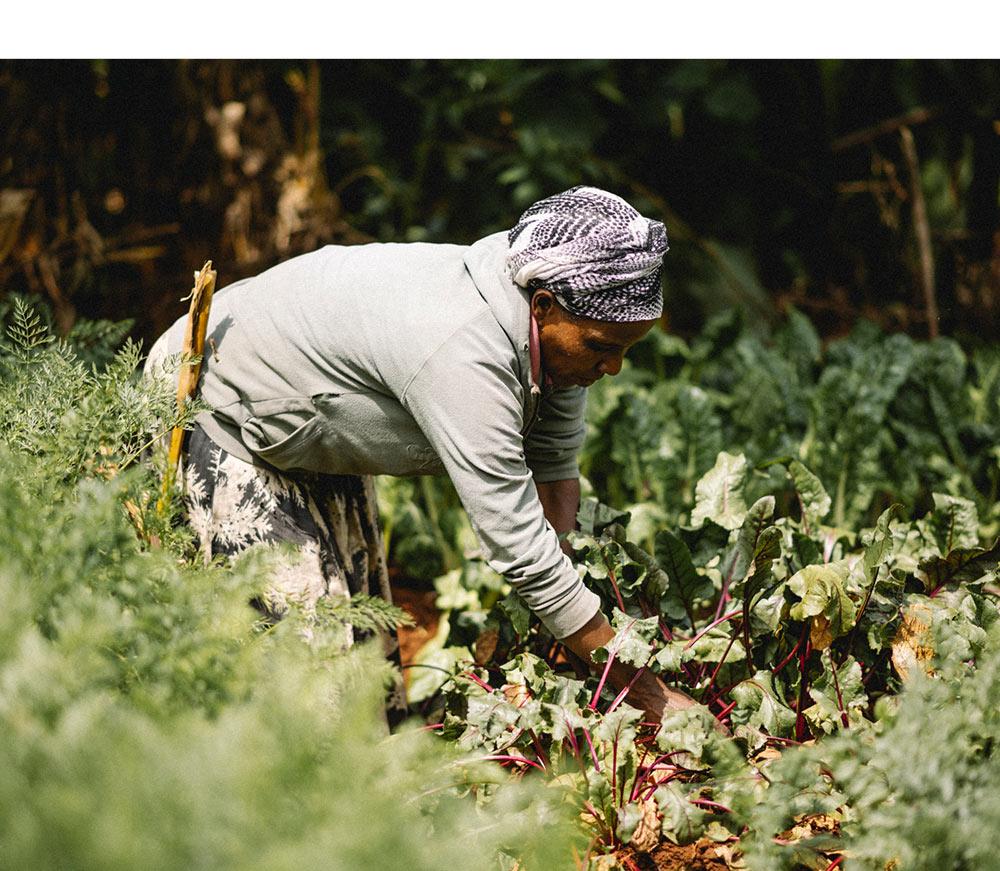
“WITH EFFORTS TO INCREASE FEMALE AGRONOMISTS GLOBALLY, WE MOVED FROM 29% IN 2016 TO 35% BY 2020, BUT CLEARLY STILL HAVE A LONG WAY TO GO IN EMPOWERING WOMEN TO TAKE ON THESE ROLES. OUR AMBITION IS TO REACH 50% BY 2030 WITH A FIRST 40% MILESTONE REACHED BY 2025.”

MELANIE LANDTHALER, COFFEE SUSTAINABILITY AND GENDER EQUALITY SPECIALIST, NESPRESSO
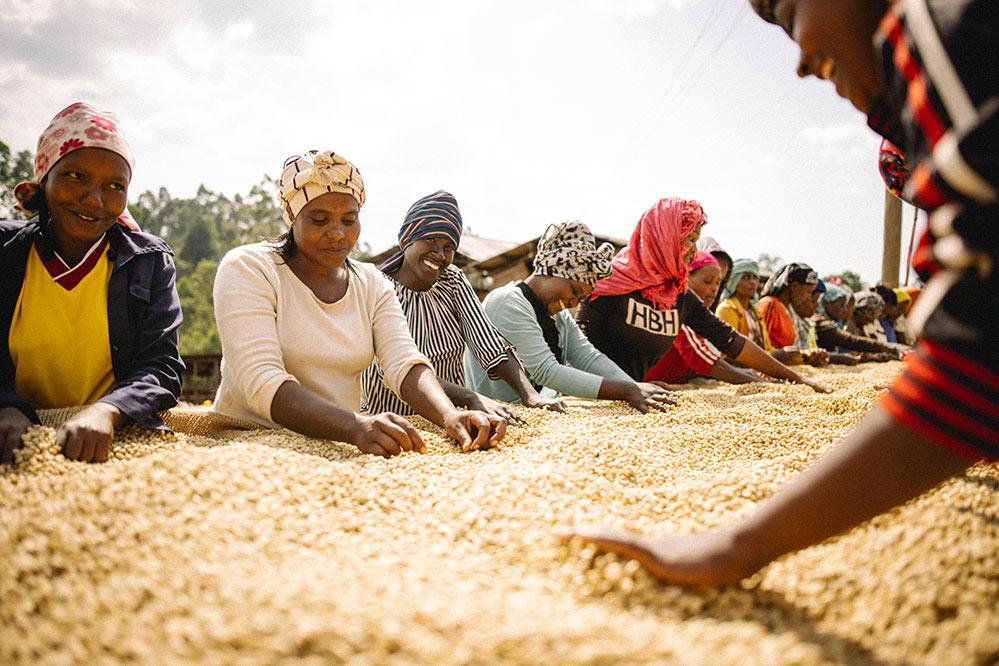
PROUD TO ADOPT THE UN WOMEN’S EMPOWERMENT PRINCIPLES
In 2023, we joined over 3,000 businesses in formally adopting the UN Women’s Empowerment Principles. These are a set of Principles for business offering guidance on how to empower women in the workplace, marketplace and community. They serve as a framework to create real impact on gender equality through commitment and action, and they help to address gender equality and promote women as leaders in the business. For Nespresso, it means we must continue to embed values of gender equality into our business values, business plans and overall organisational culture, while making managers accountable for the results through their performance reviews.



